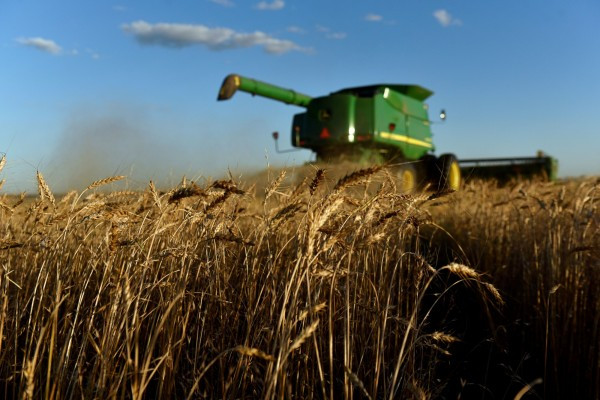Amidst growing geopolitical tensions in the Black Sea, wheat futures have soared as both Russia and Ukraine issued stark warnings to ships navigating the region. This dispute has significantly restricted the possibility of renewing crucial agricultural export agreements across the Black Sea, raising global concerns about food security. In response, wheat futures skyrocketed by 9% on Wednesday, marking the largest increase since the outbreak of the Russia-Ukraine conflict.
Ukrainian and Russian officials declared all ships headed to their respective ports via the Black Sea as potential military supply vessels, escalating the stakes in the region. The Ukrainian Ministry of Defense announced that as of midnight on Friday, July 21st, all ships heading to Russian ports in the Black Sea will be considered military supply vessels and must bear all associated risks. Similarly, Russia warned that ships navigating to Ukrainian ports in the Black Sea would be viewed as carriers of military cargo, effectively making their countries participants in the Ukrainian conflict.
This situation led to a 9% surge in wheat prices on Wednesday, marking the biggest single-day increase since the conflict erupted last February and threatened the global food supply chain. Milling wheat futures in Paris also saw a significant rise. With attacks on ports and grain infrastructure in southern Ukraine allegedly destroying tens of thousands of tons of grain within a day, investors and analysts are gravely concerned about the implications for the global food market.
Jack Scoville, a broker specializing in agricultural trade, points out the increasing unlikelihood for ship owners or shipping insurance companies to risk navigating the Black Sea channel for Ukrainian grain. Carlos Mera, head of agricultural markets at Rabobank, highlights that Ukraine will now have to export most of its grain and oilseeds through land borders and Danube ports, increasing transportation costs and squeezing profits for Ukrainian farmers.
The escalation of tensions has led many to forecast that a new grain export agreement won't be reached shortly, further threatening global food security. Low-income countries in Africa and the Middle East may become more reliant on Russian wheat, which accounts for over 20% of global exports.
Turkey, which successfully mediated the Black Sea grain export agreement with the United Nations last year, still hopes for the agreement's resumption after renegotiation. However, Russia has conditioned the resumption of the agreement on the secure export of its own food and fertilizers.
The Black Sea Grain Initiative has allowed more than 32 million tons of bulk grain commodities to be exported from three Black Sea ports in Ukraine to 45 countries worldwide. These export activities have involved over 1,000 ships. The agreement's expiry and inability to be extended have raised stakes in an already volatile region.





